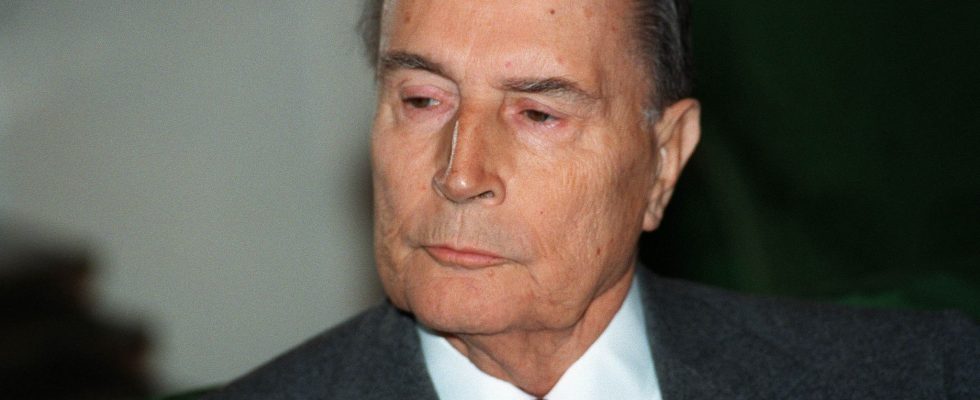To André Rousselet, who asked him at the end of his life: “Whoever knows you best, what percentage of knowledge does he have?”, François Mitterrand replied: “30%.” When the president died, Robert Badinter compared him to an English secretary, with its multiple drawers not communicating with each other. Sébastien Le Fol, before writing, read all the biographies of Charentais, but Mitterrand is a novel that never ends. A novel, because he conceived his life as a construction, a self-domination, and he constantly mixed the true and the false. Sébastien Le Fol, he favored another genre, that of the investigation, years and dozens of characters to understand an “organized gang” and a period.
We are still from the country of his childhood. And when this country and this childhood are set in the France of the 1930s, one could believe – we have also long believed – that it was a time in black and white. The good guys and the bad guys. We forgot the grey. We ended up discovering the vichysto-resistants. They are four, from the provinces, all from a right that is difficult to describe today, very conservative, influenced by Catholicism, sometimes extreme. Abracadabra, they made a left-wing president, not just any president, the first of the Fifth Republic and, forever, “the longest” in the history of France. And that made them laugh. François Mitterrand, Pierre de Bénouville, François Dalle and André Bettencourt: it is a question here of Vichy, of the war, of money, of women, of roses – not those of the socialists, those that we sniff happily -, literature too: Mitterrand and Dalle reciting poems together at the Elysée, we would not have refused to attend the scene.
This book is another explosive way of recounting Mitterrand’s transformation into a man of the left, coming to him from such a distant horizon, and his constant efforts, throughout his life, at the cost of many lies, but always with the help of his accomplices, to conceal what would have been, in the eyes of his socialist “comrades”, a prohibitive handicap. “Only Bénouville, Dalle and Bettencourt knew what he looked like without his disguise. Besides, they never believed in his metamorphosis. But in public they agree to play the scenario he imagined. The end justifies the means” , writes Sébastien Le Fol.
“I’m going back to the adult world”
When, after his election, Mitterrand goes to Bénouville, he talks to him about everything except politics, and when he leaves, sighs: “I’m going to find the world of adults again.” You shouldn’t believe that these four, even young ones, were sweet dreamers. “They built their friendship through adversity and brimstone. It grew in a land of secrets.” For example, there are countless Cagoulards who have swarmed around Mitterrand. Until this scene in 1984, in New York: during a reception, Mitterrand fell into the arms of Jacques Corrèze, “a fascist, a real one”.
Of the three accomplices, Bénouville is the one who had the strongest influence with “François”, any RPR deputy that he was, any Gaullist deeply attached to the figure of the general that he had always been – the publication of the Permanent coup caused a rare argument between the two men. He is there at the time of the nationalization of Dassault after 1981, intervenes during the famous showdown between Mitterrand and the president of the socialist deputies Pierre Joxe on the amnesty of the putschist generals in Algeria. It was he who calmed the ardor of the young right-wing deputies in 1984, when the latter, Alain Madelin and Jacques Toubon in particular, publicly evoked Mitterrand’s past; he, too, who welcomed Jacques Chirac and Jean-Marie Le Pen into his apartment in 1988.
The end is an appointment not to be missed. That of the others – the president, “in an intense emotional state” according to a witness, attends the funeral of Jean-Paul Martin, former chief of staff of René Bousquet’s main collaborator -, his own: Bénouville watches all night on Mitterrand’s body and prays, a few days earlier he summoned François to ask for forgiveness, this one will receive extreme unction in the following hours. To life, to death.
In an organized gangby Sébastien Le Fol, Albin Michel, 280 pages, €21.90.
